In a letter addressed to the Ethics and Anti-Corruption Commission (EACC), the Office of the Director of Public Prosecutions (ODPP), and Parliament’s Public Accounts and Health Committees, a lobby group has raised serious allegations against businessman Jayesh Saini and his various companies.
Our investigative team, which has seen the letter, reports that the lobby group has gathered evidence, including paperwork and invoices, which they are prepared to hand over to the relevant authorities.
The group maintains that their actions are not part of a witch hunt but rather an effort to address systemic corruption and corporate monopolization in Kenya’s healthcare and insurance sectors.
The lobby group is urging the EACC and ODPP to launch a comprehensive investigation into the matters raised.
They claim that the Senate Health Committee may have been compromised in its earlier handling of similar issues, raising concerns about the integrity of oversight bodies in addressing such high-level corporate misconduct.
The group’s letter draws comparisons between this case and the sugar baron scandal involving Jaswant Rai.
In that case, Rai and his conglomerate were exonerated despite evidence suggesting they had supplied mercury-contaminated sugar to the Kenyan market, posing major health risks to millions of citizens.
The lobbyists fear that a similar pattern of legislative complacency and corporate influence is at play in the current investigation involving Saini.
The first issue the letter highlights is the unresolved probe into a staggering Ksh176.1 billion involving insurance schemes for the Teachers Service Commission (TSC) and the National Police Service.
The funds, which were supposed to provide insurance coverage for these critical public services, have reportedly gone missing, with no clear explanation or accountability.
The lobby group has identified Jayesh Saini and his company, MAKL Limited, as central figures in this financial discrepancy.
Despite the magnitude of the missing funds, the investigation has stalled, raising questions about potential interference or negligence by those tasked with pursuing justice.
In addition to the financial mismanagement in the insurance sector, the lobby group has accused Saini’s MAKL Limited of monopolizing healthcare services in key regions across Kenya.
According to the group, MAKL has systematically blocked market access for other healthcare providers in regions like Bungoma, Migori, Kikuyu, Meru, Eldoret, and parts of Nairobi, among others.
The company allegedly favors its own hospitals and healthcare facilities, such as Bliss Medical Healthcare, Lifecare Group of Hospitals, Nairobi West Hospital, and Kitengela West Hospital, at the expense of smaller, independent providers.
This monopolization, the lobby argues, has created a stranglehold on healthcare access, particularly in rural areas, where patients have fewer options and must often rely on overpriced and under-regulated services.
Another matter of concern brought up by the lobby group is the Clinix scandal, a case that dates back several years but remains unresolved.
The Clinix scandal involved massive fraud in the National Hospital Insurance Fund (NHIF), where funds meant to cover medical services for low-income Kenyans were siphoned off by fraudulent clinics, including those linked to prominent businessmen.
The lobby group asserts that the Senate Health Committee at the time was likely compromised, as no significant action was taken to hold the perpetrators accountable.
They are calling for a reopening of the investigation, particularly to scrutinize Saini’s involvement and whether he or his entities benefited from the scam.
The letter also alleges possible involvement in organ trafficking, with specific concerns about collaboration between Mediheal Hospital and Nairobi West Hospital, both of which are reportedly linked to Jayesh Saini.
The lobby group has called for an in-depth investigation into these allegations, urging the authorities to uncover any unethical or illegal activities within these institutions.
Organ trafficking has long been a global concern, and Kenya is not immune to the illegal trade in human organs.
If these allegations are true, the implications for the healthcare sector and public trust in medical institutions could be devastating.
Finally, the lobby group has called on the Kenya Revenue Authority (KRA) to conduct a thorough review of Jayesh Saini’s tax compliance.
Given the widespread allegations of financial misconduct and monopolistic practices, the group believes it is crucial to establish whether Saini and his companies have been paying their fair share of taxes.
Tax evasion is a big issue in Kenya, particularly among wealthy individuals and large corporations that have the means to exploit loopholes in the system.
Ensuring tax compliance would not only hold Saini accountable but also serve as a deterrent for other businessmen who might engage in similar practices.
One of the most troubling aspects of the case is the close relationship between Jayesh Saini and President William Ruto.
According to the lobby group, Saini was a key financier of Ruto’s presidential campaign, a relationship that has allegedly provided him with protection from prosecution.
The group fears that the current political climate, combined with Saini’s financial contributions, could create a “rigged system” where justice is delayed or denied.
However, they remain hopeful that the weight of their evidence will compel the authorities to act, and that justice will eventually be served.
The lobby group has made a compelling case for a comprehensive investigation into the activities of Jayesh Saini and his companies.
They have gathered substantial evidence, including financial records and testimonials, to back up their claims.
They are calling on the EACC, ODPP, and other relevant authorities to step in and ensure that justice is served, not just for the teachers, police officers, and other public servants affected by the missing insurance funds, but also for the countless Kenyans who have suffered due to monopolistic practices in the healthcare sector.
The lobby group is determined to see that all stolen or misappropriated funds are recovered and that those responsible are held accountable for their actions.







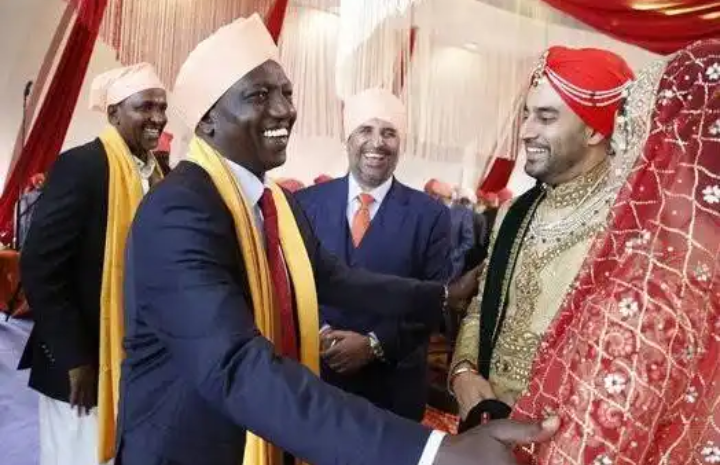


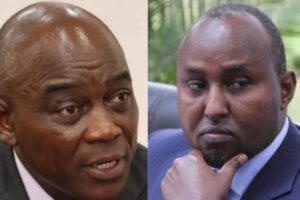


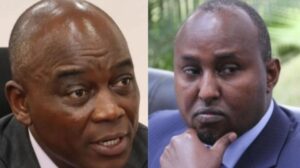



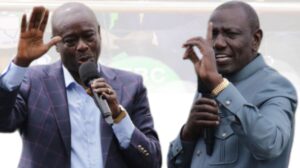

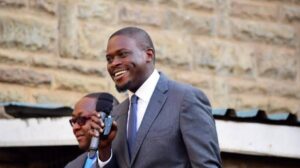

Add Comment